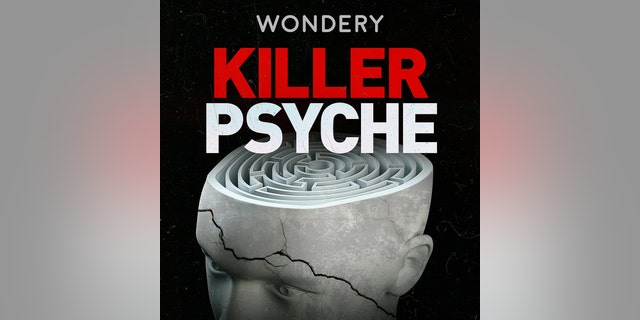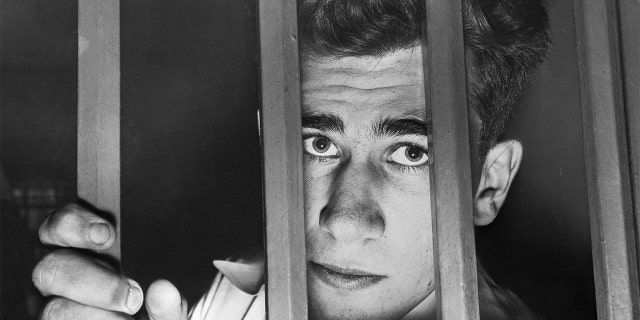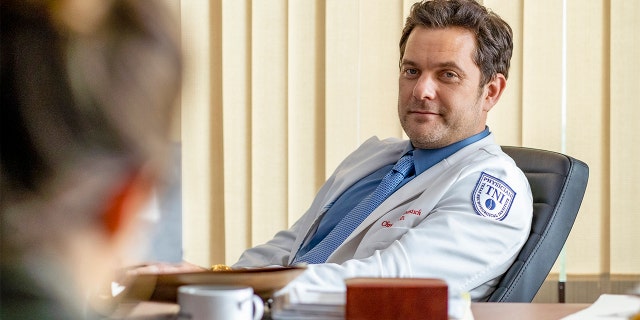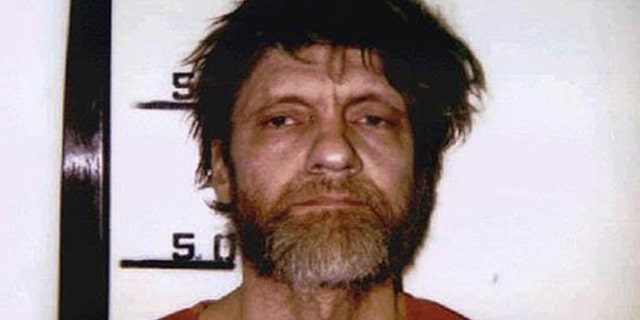
Fox News Flash top entertainment headlines for July 29
Fox News Flash top entertainment and celebrity headlines are here. Check out what’s clicking today in entertainment.
Candice DeLong isn’t done with crime yet.
The retired FBI profiler recently launched a new true-crime podcast series on Wondery titled “Killer Psyche” where she draws on her decades-long career to reveal why some of the most shocking murderers in America commit heinous acts.
The homicide expert, who has been called the FBI’s “real-life Clarice Starling,” is no stranger to life on the front lines. According to true-crime network Investigation Discovery (ID) she “has tailed terrorists, gone undercover as a gangster’s moll and posed as a madam for a call-girl ring.”
Candice DeLong has been called the ‘real-life Clarice Starling’ over the years.
(Photo by Brad Barket/Getty Images)
DeLong spoke to Fox News about launching “Killer Psyche,” which case truly left her stunned, as well as some of the most common reasons someone would be willing to kill.
Fox News: Why did you choose to create “Killer Psyche” for Wondery?
Candice DeLong: Analyzing the behavior of people who commit violent acts is right up my alley. It’s the thing I’m most interested in. I started out my career as a psychiatric nurse and eventually became head nurse at the Institute of Psychiatry at Northwestern.
I was working with disturbed people or people who had serious emotional, behavioral or psychiatric problems. I thought I would be doing that for the rest of my life. And then the FBI recruited me. After four years with the FBI, I was asked if I’d like to be a profiler. And thus began my life of analyzing crime.
Candice DeLong has launched a podcast on Wondery titled ‘Killer Psyche.’
(Wondery)
Fox News: Why do you believe people are so fascinated by something as horrifying as murder?
DeLong: The truth is, most people go their whole lives and are never aware of anyone who was a victim of murder or committed murder… But the murders we focus on are head-scratchers. Who would kill a woman and then write on the wall in her bedroom with her own lipstick for heaven’s sake? “Catch me before I kill again, I cannot stop myself.”
That’s intriguing… When I was a young psychiatric nurse, we rarely had patients who committed crimes, but periodically, we did. Somebody who was arrested for murder would be sent to our psychiatric unit for 30 days of observation. The other nurses did not want to work with these patients. But I was drawn to them. I wanted to know what made them tick so that if I ever encountered anybody down the road in my life who acted that way, I would not be victimized. I would tell myself, “The more I learned about it, the more I would be able to handle this type of thing if it ever happened to me.”
Fox News: Out of all the cases you explored in your podcast, which one truly left you stunned and why?
DeLong: The Tylenol murders. I worked on that case in 1982 in Chicago. Somebody tainted real Tylenol capsules with potassium cyanide, put them back in the bottle, put the bottles in boxes, put them on the shelves and walked out. This was in the days before cameras, before barcodes, before all kinds of things that are now available. That case resulted in the creation of tamper-proof lids. Today it is considered one of the top five unsolved crimes in America.
The haunting plea of convicted murderer William Heirens is scrawled with lipstick on a bedroom wall of one his three victims. Heirens was called The Lipstick Killer and at the time of his death in 2012 was the longest serving prisoner in the world.
(Photo by Kirn Vintage Stock/Corbis via Getty Images)
One case that I do tend to go back to is the Lipstick Killer. To me, that was one of the most fascinating cases I’ve ever studied from a behavioral standpoint. We’ve got two women, two different apartments, six months apart. The women lived alone and are stabbed to death in their own apartments. In the second murder, the killer writes on the wall with the victim’s lipstick. I would have looked at that and said, “We’re looking for a teenager.” This is not an ex. And the women were not sexually assaulted. And then a month later, a little girl was taken out of her bed at night in the same neighborhood. Her body parts were found a few days later, spread all over the area.
The offender was caught and it turned out to be a 17-year-old boy who was a student at one of the most prestigious universities in the country, the University of Chicago. That just turned everything on its head… It was a sexually motivated crime. We learned a lot from it. But that one was definitely a head-scratcher. We know that kids, teenagers can absolutely commit horrible crimes against people.
I also worked on the Unabomber case. I sat across the table from Kaczynski while he was handcuffed. I chatted with him in the mountain cabin. I fed him my drink and my candy bar while we were searching in his cabin for bomb materials and evidence. Like the Lipstick Killer, he’s a fascinating subject to study.
William Heirens, a 17-year-old suspect in the Degnan kidnap slaying, appears calm in his cell at the Cook County Jail. Police announced his fingerprints matched a print found in the hotel room in Chicago, where Frances Brown was murdered December 10, 1945.
(Getty Images)
Fox News: The podcast also discusses the case of “Dr. Death.” How could someone like a doctor manage to keep operating on patients for as long as he did?
DeLong: That was a system failure. There were two doctors that tried to stop him and notice there was something wrong. They went to the administration… It’s a terrifying story.
I remember I was waiting for knee surgery. I hurt my knee a year ago and I was finally scheduled for surgery. Then this story came up and I was totally unaware of it. I was terrified. When I went for my consultation, I’m meeting with the doctor in the room. And he goes, “This is not a problem. We can fix this easily. You’ll walk out of the hospital.” That’s what Dr. Duntsch used to tell his patients, “This is easy, I can fix it, you’ll be fine.” I remember I asked [my doctor], “By the way, are you board certified?”
When I was choosing a surgeon, I decided to choose one who was not in private practice but instead, in practice with other orthopedic surgeons. If one doctor out of five is a screw-up, he’s never going to last. If the doctor is a screw-up they’re going to be gone because it reflects on the entire practice. And the practice could be liable if something really bad happened. So I chose someone in an orthopedic practice. I also didn’t want a young person. I picked one who had gray hair. I wanted somebody who had done this thousands of times.
The case of ‘Dr. Death’ was chronicled in a scripted series starring Joshua Jackson as Christopher Duntsch.
(Photo by: Scott McDermott/Peacock/NBCU Photo Bank via Getty Images)
But this is a cautionary tale. There’s another “Dr. Death” who diagnosed people with cancer who didn’t have cancer and put them on chemotherapy. He made millions. He’s in prison now for the rest of his life. There are bad doctors out there… just like in any other profession.
Fox News: What’s the most common reason someone would commit murder?
DeLong: The trifecta of motivation is profit or personal gain. There’s sex, love and possession. But there’s also jealousy. My boyfriend’s dating somebody else and if I get rid of her, he’ll want me back… Another type of thing we see all the time is… a married person having an affair and then the unsuspecting spouse is killed either by their own spouse or by the lover who wants them out of the way. That comes under jealousy, love and sex.
People who are obsessed are absolutely dangerous, whether it’s a female or male offender… If you’re in a bad relationship and you come home, you open your closet and your clothes are slashed, that’s a message. And the message is you’re next. If I can get this close to you and destroy your personal items that are on your body with my knife or scissors, guess what else I can do? We tend to dismiss any of these things as, “Oh, they’ll go away.” Really? No, they won’t.
Mugshot of Ted Kaczynski, identified as the domestic terrorist known as the Unabomber, April 1996.
(Photo by Bureau of Prisons/Getty Images)
Fox News: Is there a case from your career that, to this day, you still think about?
DeLong: … I was on a squad in San Francisco… I was the acting supervisor on that squad. And I got a call at four in the morning from one of my squadmates who said, “We’ve got a lead on a little boy who was kidnapped by a convicted child molester. And they’re coming through town.”
That’s the kind of case you live for, to rescue a kidnapped victim and return them to their family alive. It was supposed to be at the Greyhound bus station in Oakland. We were all there looking like we were travelers, reading newspapers and waiting for the train. The bus came in, but they weren’t on it. A supervisor of another squad said, “Let’s go to the Amtrak station in Oakland.” Just on a hunch.
We did. The offender we were looking for was 6-foot-four and had copper red hair. Now you would think that’s easy to spot. And the little boy that was with him was 11, but looked more like a 9-year-old… Saturday morning, hundreds of people are walking around. We’re all spread out looking for this six-foot copperhead guy. I’m looking in one direction.
(L-R) Hosts Lt. Joe Kenda, Chris Hansen and Candice DeLong speak onstage during the ‘A New Season of ID’ panel discussion at the Investgation Discovery portion of the 2015 Summer TCA Tour at The Beverly Hilton Hotel on July 30, 2015 in Beverly Hills, California.
(Photo by Frederick M. Brown/Getty Images)
Then I heard screaming… guns were drawn by my colleagues and that’s all I could see. On top of this group of men was shocking red hair. I’m trying to see between these bodies and I can’t see the kid. Then I saw this little arm in front of me. I reached in between all these other arms as FBI agents are saying “Get down.” I pulled the little boy away.
I took him to my car and said, “You’re safe.” I still get emotional when I think about it. I took him to the office… He had a duffel bag on. I glanced down and the bag was open. I said, “What’s that?” I didn’t recognize the crack pipe. He pulled it out and goes, “It’s how we smoke crack.” I said, “Tell me about smoking crack.” He goes, “Well, he makes me smoke crack before he does things to me.” There were also some [oatmeal] cookies in there… He had been taken from Oregon and living on crack cocaine, oatmeal cookies, Pepsi or Coke. They were on their way to San Diego where they were going to cross the border into Mexico. The offender had a lot of cash with him.
… I took him home to his family who was waiting for him. He just looked like my son did when he was 9-years-old. He fell asleep and his head was on my shoulders on the plane. His family was waiting… He said, “That’s my dad.” He started to run and then he stopped. He turned around and said, “I forgot to thank you, agent.” And then he ran to his family.
Candice DeLong hopes her journey will inspire others.
(Photo by Tommaso Boddi/Getty Images for Samsung)
We became friends. Now it’s 25 years later. He’s 35. I helped him get therapy that the government paid for. His life was not easy. It was not good. He had a lot of problems because of what happened. But now he’s OK… He lives in Alaska. He’s married, has a family. We talk frequently. [But] the magnitude of all that didn’t really hit me for many years… I loved being a psych nurse. I loved being an FBI agent. I was proud to serve my country. I was happy to be involved in the mix. And if I can… [I hope to] inspire someone to become an FBI agent or a great psych nurse or anything where they can help and serve others.
Source: Read Full Article








